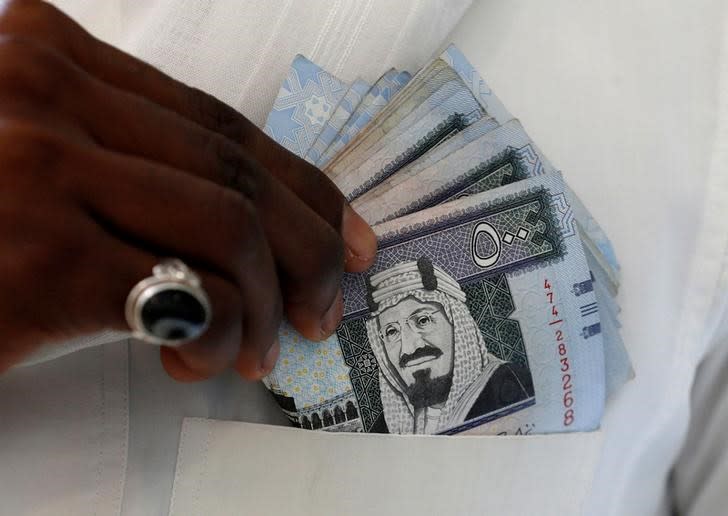Saudi Arabia makes first offer of domestic sukuk in three tranches

DUBAI (Reuters) - Saudi Arabia's government made its first offer of riyal-denominated Islamic bonds to investors on Sunday, auctioning sukuk with maturities of five, seven and 10 years, a document seen by Reuters showed.
Riyadh is launching a domestic sukuk issuance programme to help cover a large budget deficit caused by low oil prices.
Five-year sukuk were offered at yields in a range of 2.90 to 3.00 percent, seven-year at 3.25-3.35 percent, and 10-year at 3.55-3.65 percent. Investors have until 2 p.m. local time on Monday to submit bids.
The ministry did not give the amount of sukuk that it aimed to sell, but Saudi commercial bankers said they expected an issue of about 10 billion riyals ($2.7 billion), which the market could cope with easily since liquidity had improved since last year and investors had been preparing for the issue.
The finance ministry said last week that 13 domestic banks had qualified to participate in its domestic sukuk issues. Its document said the sukuk could be bought in the secondary market by "sophisticated investors", such as institutional and professional investors.
(Reporting by Davide Barbuscia; Editing by Andrew Torchia)

 Yahoo Finance
Yahoo Finance 